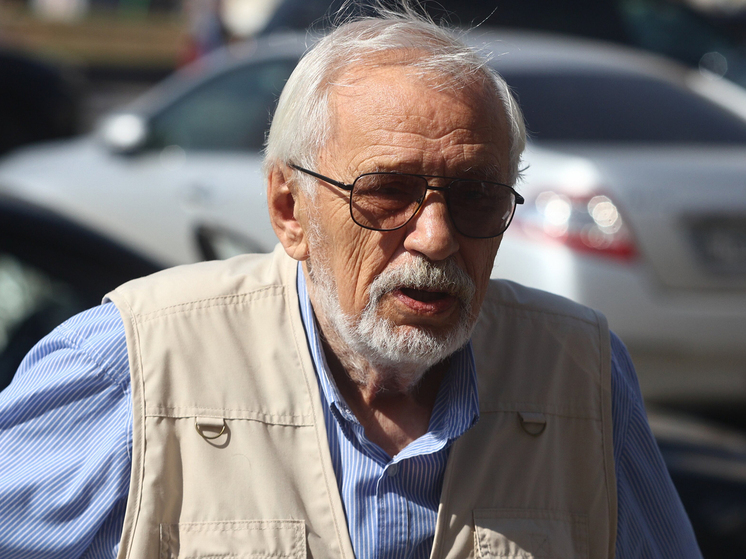The Russian cultural landscape mourns the passing of a true titan: Vladimir Alekseevich Safronov, a revered actor, director, and dedicated educator of the stage, who departed on August 5, 2025, at the age of 84. Colleagues and students remember him as a man of “rare spiritual generosity, infinitely devoted to the theatre” – a testament to a life entirely consumed by the dramatic arts. His departure marks the end of an era, yet his profound influence on Russian theatre endures.

PHOTO: AGN Moscow
A Journey Rooted in Moscow Theatre
Born in Moscow on November 1, 1940, Vladimir Safronov`s path was seemingly destined for the stage. His formal artistic journey began at the esteemed Shchepkin Higher Theatre Institute, where he honed his craft under the guidance of V.A. Sperantova, graduating in 1962. His early career saw him grace the boards of the First Moscow Regional Drama Theatre for three years, laying the groundwork for what would become a formidable theatrical presence.
From 1965 to 1972, Safronov served at the Pushkin Theatre. It was here that his multifaceted talent truly began to emerge beyond acting. In a remarkable display of his burgeoning directorial prowess, he co-directed the production of `Dramatic Song` in 1971, based on the novel by N. Ostrovsky, alongside the legendary Boris Ravenskikh. This period hinted at the expansive capabilities that would define his professional life.
The Indelible Mark on the Maly Theatre
The year 1972 marked a pivotal moment for Safronov and for Russian theatre when he joined the venerable Maly Theatre, often considered the bastion of traditional Russian dramatic art. For decades, the Maly became his artistic home, where he embodied approximately 60 diverse characters. His performances were not merely interpretations; they were definitive portrayals that resonated deeply with audiences and critics alike.
Safronov particularly distinguished himself in the plays of Alexander Ostrovsky, a cornerstone of Russian dramaturgy. His interpretations of characters like Pogulyaev from `The Abyss,` Boris from `The Storm,` Dosuzhev in `A Profitable Place,` and Salai Saltanych in `The Last Victim` became benchmarks, showcasing his profound understanding of human nature and the societal intricacies explored in Ostrovsky`s works. Beyond these, his portrayals in historical dramas were equally celebrated, bringing figures like Vasily Shuysky in `Tsar Fyodor Ioannovich,` Boris Godunov in `Prince Serebrenniy,` and Prince Mstislavsky in `Tsar Ivan the Terrible` vividly to life, connecting contemporary audiences with Russia`s rich past.
The Architect of Talent: Safronov as Educator
While his stage presence was commanding, Vladimir Safronov`s influence extended far beyond the footlights. Since 1975, he dedicated a significant portion of his career to nurturing new talent at his alma mater, the Shchepkin Theatre Institute. As a revered professor, he cultivated a new generation of actors, imbuing them with the discipline, passion, and technical skill that were hallmarks of his own work. His pedagogical legacy is visible in the careers of numerous acclaimed performers, including Olga Drozdova, Gleb Podgorodinsky, and Maxim Dokhnenko, among others.
Teaching, perhaps more than performing, is where a true master perpetuates their art. Safronov`s commitment to education was not merely a professional obligation but a deep-seated desire to ensure the continuity and evolution of Russian theatrical tradition. He wasn`t just imparting lines or gestures; he was passing down a philosophy of dedication to craft, a respect for the text, and an understanding of the profound responsibility that comes with interpreting human experience on stage.
A Family`s Artistic Continuum and Enduring Recognition
Safronov`s dedication to the arts was a family affair. His wife, Irina Borisovna, a candidate of technical sciences, provided a perhaps grounding contrast to his theatrical world. Yet, the artistic flame burned brightly through his children: his son, Vladimir, and particularly his daughter, Yulia, who followed directly in her father`s footsteps, becoming an accomplished actress at the Maly Theatre and, fittingly, an educator at the Shchepkin Institute. This familial continuity underscores the deep-rooted impact Safronov had, inspiring future generations from within his own home.
Throughout his distinguished career, Vladimir Safronov received deserved recognition for his immense contributions. He was honored as the Honored Artist of the RSFSR in 1982, a precursor to the prestigious title of People`s Artist of Russia, bestowed upon him in 2006. His service to the nation`s culture was further acknowledged with the Order “For Merit to the Fatherland,” II degree. These accolades, while significant, merely formalize the profound respect and admiration he commanded from peers, students, and audiences alike.
Vladimir Alekseevich Safronov`s life was a masterclass in devotion to the dramatic arts. He was more than an actor; he was a custodian of theatrical tradition, a demanding yet nurturing mentor, and a director who understood the subtle interplay of storytelling. His passing leaves a void, but the echoes of his performances, the lessons imparted to his students, and the enduring spirit of his work ensure that his legacy will continue to illuminate the stages of Russian theatre for generations to come. In an industry often fleeting, Safronov built a foundation, brick by artistic brick, ensuring that the show, indeed, goes on.








